‘Drag Race’ winner Alaska is ready to make her TV comedy debut
Alaska Thunderfuck 5000 boldly pushes beyond her comfort zone -- and maybe yours -- on her "Extra Special Comedy Special"

Alaska Thunderfuck 5000 genuinely seems like she might have landed on earth from some distant, preternaturally glamorous planet. Anything’s possible in these unprecedented times. But more likely the drag superstar’s singular way of speaking, being, even entering — “Hieeeee!” — is the product of a fertile mind who understands exactly who she is and what she’s serving.
Alaska herself best sums up her persona during a backstage moment of her first TV comedy special, The Alaska Thunderfuck Extra Special Comedy Special, premiering this month on OUTtv. Getting into drag — transforming from L.A.-based performer Justin Andrew Honard into Alaska the glamazon, recording artist and Drag Race All-Star — she describes her character as “more like Bea Arthur, in the sense that Bea Arthur is funny because she’s really serious. Like Alaska’s not joking when she says she’s the most beautiful woman on earth, because she fully believes that, and that’s why it’s funny.”
She also took seriously the task of nailing down details for the hour-long special. Alaska is serving a stocked smorgasbord of entertainment, including musical numbers, filmed segments, with a quick trip to the RuPaul Pop-up Shop in Hollywood, and a ballsy standup set by Alaska as her comic alter ego. She presents rising queens Kerrii Colby, Grant Vanderbilt, and Sabbyiana for a fierce lip-sync contest, clearly inspired by the inclusive competition that Alaska and fellow drag artist Lola LeCroix co-founded, the illustrious Drag Queen of the Year Pageant Competition Awards Contest Competition.
Most notably, Alaska and the special’s producer-director Adrienne Gruben invited a gaggle of the queen’s funniest girlfriends — drag legends Jackie Beat and Sherry Vine, and queer comedian Margaret Cho — to watch and critique the show for added bits of snark and texture.
The idea for this “I Love Alaska” meta approach was borne of the star’s concern that the special, recorded live before an audience, pre-pandemic, might hit differently after an eventful 2020. “We filmed it so long ago and the world changed,” Alaska says, beaming into a Zoom call out of drag, but looking fabulous seated in front of a tropical palm background apparently swiped from Blanche Deveraux’s boudoir.
“It was really getting advice from people I admire and people I look up to — Jackie, Sherry, Margaret Cho — it was really their guidance and their encouragement that made me [decide], ‘Okay, let’s fucking do it. Let’s do this thing.'”
The result, with Beat, Vine, Cho, and Alaska’s often cutting commentary sharing space with Alaska’s confident onstage performance, is daring, funny, and even insightful. But, as the special’s press release asks, “In a rapidly changing world, does the comedy go too far? Are the jokes too risqué? Is the glamour too glamorous?” We can only respond that Alaska Thunderfuck 5000 could never be too glamorous.

METRO WEEKLY: Watching your special reminded me that, a long time ago, I saw Sherry Vine and Jackie Beat perform Edgar Allen Poe’s The Tell-Tale Heart at a theater in the East Village. It would have been awesome and trippy, anyway, but me and my friend were ‘shrooming that night, and we were laughing like crazy the whole time. All of that is to say: some of my best nights out have been to drag shows. What are some of your best nights out when you were not the one in drag?
ALASKA THUNDERFUCK 5000: [Gasps with delight.] Oh my gosh! that sounds like so much fun. I wish I could go in a time machine and do ‘shrooms and go see The Tell-Tale Heart. That is so Jackie, she’s so goth. She really is, at heart.
My answer to your question is Jackie and Sherry doing The Golden Girls, which they do in this tiny theater in the basement of a Mexican restaurant out here in Los Angeles, in Silver Lake. They do episodes of The Golden Girls — and The Golden Girls is as close to a religion as I have. It’s such a magical and lovely and joyous experience. I can’t wait until we’re able to do that again.
MW: Actually, I caught a Blanche Devereaux reference in the comedy special: “It’s like pulling teeth to get a little, tiny compliment out of you people.”
ALASKA: [Laughs.] You got that one. Basically, all of my humor, and all of my jokes are stolen from The Golden Girls. My whole personality is just stolen from The Golden Girls.
MW: Sitting down to watch the special, my husband asked me what’s the format. Is it standup? Is it sketch comedy? I was like, I don’t know, but I’m sure she can do whatever. Do you feel like you’ve proven yourself to be a queen who can do it all? Or is there anything that you wish you were doing better?
ALASKA: I probably should have just stood there and told jokes for an hour — that was probably what was expected of me. And then I was like, “Okay, so we’re doing jokes, but we’re doing musical numbers, we have a drag contest, Jeremy’s doing crystal singing bowls. Great, good! We have a show!” Because I’m extra and I can’t help myself. I would have liked to have challenged myself to do just jokes, because I have so much respect for comedians who are comedians, who are able to stand there with a microphone and hold the room for a fucking hour. But I had to do a little bit of everything.
MW: One talent of yours is your knack for naming things. Lil’ Poundcake is legendary, the Extra Special Comedy Special is hilarious. That’s a quickness.
ALASKA: I guess it just comes to me. The Extra Special Comedy Special was something I started saying on stage. I probably should have rehearsed more — but no, it just sort of started coming out and then I was like, “Oh, well I guess that’s the name. It’s Alaska’s Extra Special Comedy Special.”

MW: I did not anticipate the layer of you and your friends watching the show and critiquing it while we watch it. How did you arrive at that as a way of framing the whole thing?
ALASKA: Well, we recorded this so long ago. We filmed it before the pandemic happened, then the pandemic happened, then it seems like the whole world changed in such a short amount of time. And I was to the point where I was like, I don’t even know if we should be doing this, if this is appropriate to be like, “Here’s me telling some jokes! Yuk-yuk-yuk.” I was like, I don’t know what to do with this. And so we were like, why don’t we make that part of the special, that conversation or that trepidation? So we called up our comedy gurus, Margaret Cho and Jackie and Sherry, and we sort of talked it out and talked through it, and put it in the context of the world now.
MW: Sherry brings that conversation into the special by saying that you sound like you’re being really hard on yourself. Do you think that you’re your harshest critic, and does it ever get in the way?
ALASKA: Sometimes. I mean, I guess it was especially during this time period. Usually I’m just like, “Just fucking do it and, you know, who cares?” But this was like, I just wanted to get it right. And so I was nervous, but luckily my comedy gurus helped put me at ease.
MW: Speaking of getting into ease onstage, I love that you get into your “comedy jacket” and glasses and the comedy wig. Is that for empowerment or is that more a defense?
ALASKA: It’s a little of both. And that’s the power of drag — clothes make you feel a certain way and stand a certain way, act a certain way. So it was like if I was just standing there in a beautiful dress, I don’t feel like I would [fit] the tone of the jokes, that was very like set-up and punchline. I would rather put on some clothes that lend themselves to that sort of schticky, cheesy humor. So the shoulder pads, the crazy short, Phyllis Diller hair, I don’t know. I loved it. I felt pretty.
MW: Is that another Alaska? Who is that persona?
ALASKA: I don’t know who it is. It’s a shade of Alaska, but it’s a character that, since doing the comedy special, I’ve sort of played with a little bit more. It’s definitely like a different angle. It’s kind of like, [dropping into character] the voice is a little deeper. And I don’t know who the fuck it is. Sherry Vine calls it Phyllis Rivers, cause it’s like a combination of Phyllis Diller and Joan Rivers.

MW: She is funny. And in true “Phyllis Rivers” fashion, you tell a stream of dark, potentially dangerous jokes. And I think the audience goes on that journey with you. I’m not going to spoil the jokes here, but do you ever worry about offending anybody?
ALASKA: Yes, of course! I never want to have anyone leave a show and feel offended or feel worse than they did or feel diminished. I want people to feel empowered and uplifted. That’s my goal. I have so much respect for comedians because their job is to take the really dark stuff that is out in the world and talk about it and shed light on it and twist it so that it’s a little less scary and a little less horrible. It’s a line that comedians walk, and I praise them and I thank them for doing so. Sometimes they get it right, sometimes they don’t, but I’m glad they’re doing that work.
MW: Jackie talks about the fact that drag was, and used to feel, more subversive. And now it’s like storytime, reading fairy tales to kids, but obviously there’s still some subversive drag out there. Do you agree? And where do you look for it?
ALASKA: Well, drag itself is subversive, and it is political. It sort of calls into question the very idea of gender and what is clothing, and “Why is this clothing for men and why is this clothing for women?” And it casts all of that aside, calls it into question, makes fun of those ridiculous conventions. So that is very subversive. The gender binary has been something that has been in place for many, many years that has oppressed a great, great many people. Subverting that is the important work of drag and the important function of drag. That’s not why I got into drag. I just got into it cause it was fun and cool, but that is the greater message behind it.
MW: Is drag still fun and cool for you?
ALASKA: Most of the time drag is really fun and cool. The time that it’s not fun and cool is when the fucking nail glue won’t fucking glue the nails on your fucking fingers. That’s when it’s not fun and cool, and it’s horrible. But for the most part, once everything is glued to where it’s supposed to be glued, then it’s fabulous.
MW: On keeping it all subversive and doing the work, is that why you and Lola LeCroix wanted to start the — I want to say the whole thing — the Drag Queen of the Year Pageant Competition Awards Contest Competition?
ALASKA: Yes! We started the pageant as an experiment, because we were very perplexed by the arbitrary rules that we were seeing in Drag Race and in the pageant world. Everything was very segmented. And we were like, what if we took AFAB [Assigned Female at Birth] queens and trans performers and non-trans performers and male performers, drag kings and put them all on a stage together and did one big competition? So we did it and it was absolutely amazing. It exceeded our expectations and blew us away. I’ve always shared a dressing room with all types of different performers. That’s not unusual for drag, and so of course it worked. And of course it was fantastic.
MW: Some people would argue how do you judge or compare one to the other? A drag king to a cis female drag queen to a boy in drag? I see by your expression, you’re like, “What’s the big deal?”
ALASKA: Well, luckily I don’t have to because I’m not a judge, but the judges, that’s their job. But none of the judges — either year we’ve done it — was like, “Oh, I don’t know, I’m too confused.” It’s like, no, you figured out fierce is fierce and this year Tenderoni, who’s a drag king, took the crown and won. The judges are recognizing what fierce is, no matter who the performer is.
MW: The special closes with a performance of your single “Vagina,” and you also acknowledge in the show that cisgender women have been a growing part of the drag fan base, especially in the Drag Race years. Why do you think that girls and women are really coming out for drag right now?
ALASKA: I’ve talked to people after shows a lot, and a lot of the times it’s the message and the feeling of empowerment that’s the takeaway — for everyone, but for women especially. This society is really garbage when it comes to its treatment of women. It has been for a really long time. These conversations of the Women’s March and the #MeToo movement were the things going on when I wrote the song “Vagina.” And I think it’s so important we’re having these conversations, and ultimately drag is the celebration of feminine energy and feminine power. So it is really, really empowering for everybody, and for women, especially.

MW: I find it empowering. I watch drag queens and think they give us implicitly or explicitly permission to be and do all things.
ALASKA: Yaaas.
MW: Speaking of Drag Race, season 13 contestant Symone, out of drag, pops up in the special. Obviously, you and sister queen Willam recap season 13 on your podcast Race Chaser. Is anybody in particular piquing your interest this season?
ALASKA: I mean, I can’t choose one because it’s too hard, and again, I’m so glad I’m not a fucking judge. Kandy Muse is so lovely and inspiring and fierce. And we worked on a song together and she’s just a heavenly dream come true. And then in Los Angeles, we’ve got Symone, who’s just turning it out and is so fucking beautiful, but also so fucking smart and just hilarious. And then Gottmik is breaking boundaries, and the makeup and the fashion. So I don’t know, it’s a very entertaining season to watch and I have no fucking idea who’s going to win, and that makes it even more entertaining.
MW: Something else you talk about in the special, is experiencing a comfortable kind of fame, where people want to come over and take a picture, say something nice and move on. Obviously all the Drag Race queens are not experiencing that level of comfort. Sometimes the relationship with the fanbase can be toxic. What do you do to try to keep it positive — in as much as you can do something about it, because it’s not entirely up to you?
ALASKA: I guess the lesson that I’m still trying to learn, and that I find to be really important, is to remember that social media is not real. As much as it impacts us mentally, we have to remind ourselves that it’s not real. And people can say things to you on there that they would never say looking at you in the face, or if they were sitting in a seat at a show. Never, never, never. And so it’s important to remember that. It’s also fucking important to remember to just turn the shit off. Don’t fucking look at it. My mental health is so much better when I’m not fucking looking at Instagram and Twitter all the fucking time. It just is, it just fucking is. So it’s a part of our life, but it’s important to maintain boundaries and remember it’s not fucking real.
MW: It’s been hard to maintain those boundaries when we all have nowhere to go. How have you been maintaining your mental balance over the last year?
ALASKA: It’s why it’s gotten so much worse, is because it’s, “Okay, everyone stay home. You can’t leave the house.” So our only outlet to the outside world has become [holding up a cell phone] this fucking black box. It has made it so it becomes so real for [some people] to the point where they’re storming the Capitol building. It has the power to really fuck with people’s perception. So it has been really difficult. It’s been an ongoing journey. I’m not saying it’s easy to put the fucking phone down and not look at it, but it is important. And, you know, I try.
MW: I also saw you fairly recently in the Netflix documentary Circus of Books, about the infamous L.A. porn shop. Have you seen the movie, what did you think of it? And did you have any recollections of working there that weren’t in the movie?
ALASKA: I loved the movie so much. And of course I watched it, I was the thumbnail. How could I not? I loved it. And the crazy thing is that there’s so much that I didn’t know about the backstory of the owners. I was just scared of them because they were my boss, and they had the power to fire me if they caught me sitting around reading a magazine. So it was just a job I had for one year. I guess the overall thing is I thought that working in a porn store would be really exciting and really sexy, and I’d just be drowning in dates and hot dudes. It was not that. It was like working at Kohl’s. It was putting stuff back on the shelf and cleaning the glass cases.
MW: It was a good movie. So when you were working there, had you just arrived in Los Angeles?
ALASKA: I had been in Los Angeles for two years before I finally got a job at Circus of Books. It was like Drag Race. I applied many times, I didn’t get it. And then finally I did. And it was actually because of drag that I ended up getting the job, because I was having my interview and trying to be very proper and be a good candidate for the job. And the guy is like, “Whatever, whatever….” Then I mentioned that I did drag and he sort of perked up. So that made the difference, I think. That’s why I got hired.

MW: You’re originally from Erie, Pennsylvania.
ALASKA: I sure am.
MW: I actually have been there once, one night to see a rock show. There were like three people in the club.
ALASKA: Werk!
MW: Erie seemed really eerie, coincidentally.
ALASKA: I mean, I don’t think so, but then again, I’m a wacko, so maybe to me everyone in Erie seems normal. So maybe that says something, maybe it is just a cradle of strangeness, but I think people there are very earnest and kind-hearted and honest and funny. That’s my impression of Erie.
MW: That’s a beautiful way to look at your hometown. So my last couple of questions are about your music, which I enjoy, and I wanted to shout out your producer Tomas Constanza, who’s worked on a lot of your tracks. Are you working on any new music? Once we’re all ready for the dance floor, will you be ready?
ALASKA: I have to get used to wearing heels again, but yes, I’m fucking ready. Am I working on new music? [Smiles.] Maybe.
MW: What about a reunion of The AAA Girls supergroup with Willam and Courtney Act?
ALASKA: I don’t think that’s happening anytime soon. I love them. Look, I work with Willam every week on the podcast, and I love Willam and Courtney so much, but I know that Courtney’s off in Australia, where they’re like, [in a perfect Aussie accent] “What’s COVID? I’ve never even heard of that.” Like, it’s a distant memory. So I don’t think it’s going to happen anytime soon. But the longer we wait, the more we can charge for when we finally do have a reunion. That’s my way of looking at it.
The Alaska Thunderfuck Extra Special Comedy Special debuts April 15 exclusively on OUTtv in the U.S. and Canada, and on Froot TV in the UK and Ireland. Visit www.outtv.ca or www.froot.tv.
Read More:
Year of the Serpent: Musician serpentwithfeet is ready to share his joy
Colman Domingo brings his masterful ‘A Boy and His Soul’ to Round House Theatre
Brandy Clark, out and proud country star, celebrates her most personal record yet
Support Metro Weekly’s Journalism
These are challenging times for news organizations. And yet it’s crucial we stay active and provide vital resources and information to both our local readers and the world. So won’t you please take a moment and consider supporting Metro Weekly with a membership? For as little as $5 a month, you can help ensure Metro Weekly magazine and MetroWeekly.com remain free, viable resources as we provide the best, most diverse, culturally-resonant LGBTQ coverage in both the D.C. region and around the world. Memberships come with exclusive perks and discounts, your own personal digital delivery of each week’s magazine (and an archive), access to our Member's Lounge when it launches this fall, and exclusive members-only items like Metro Weekly Membership Mugs and Tote Bags! Check out all our membership levels here and please join us today!




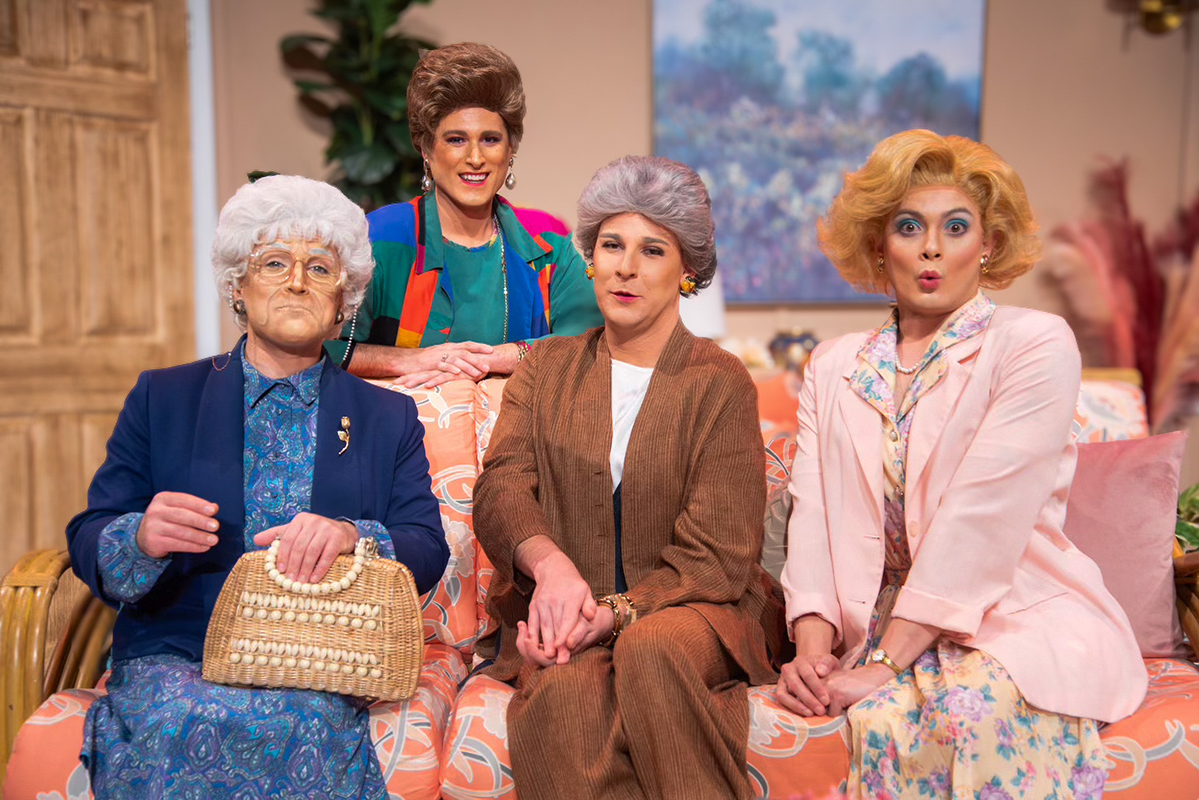
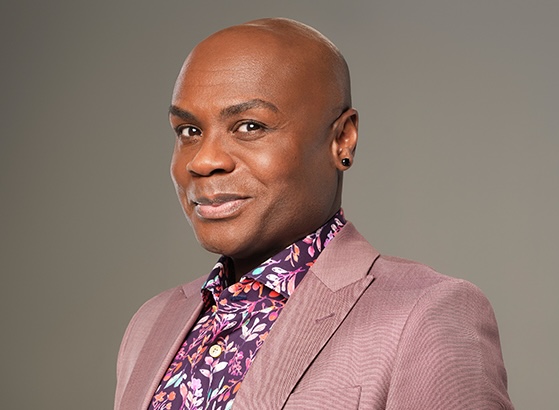
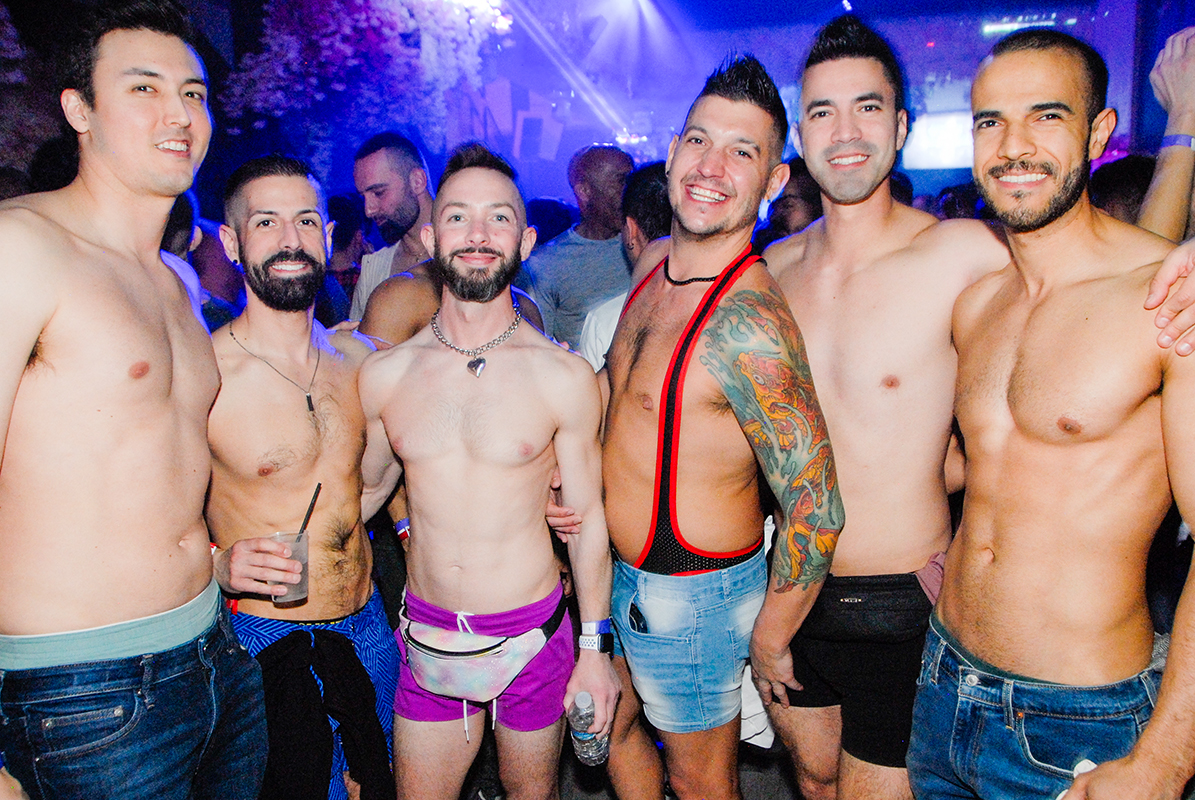














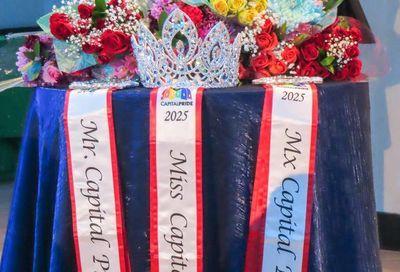
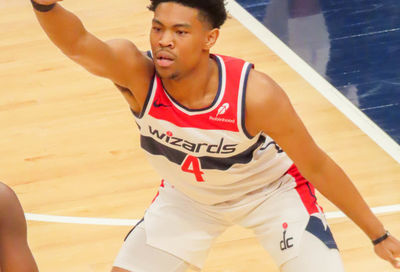
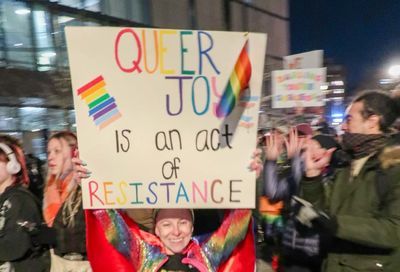
You must be logged in to post a comment.